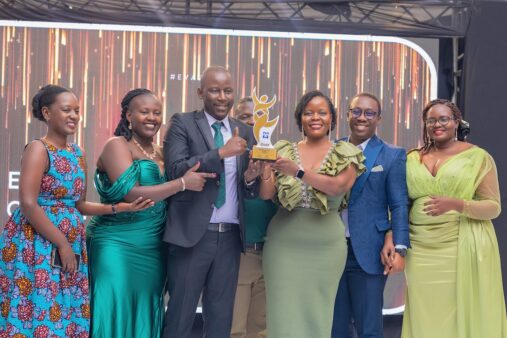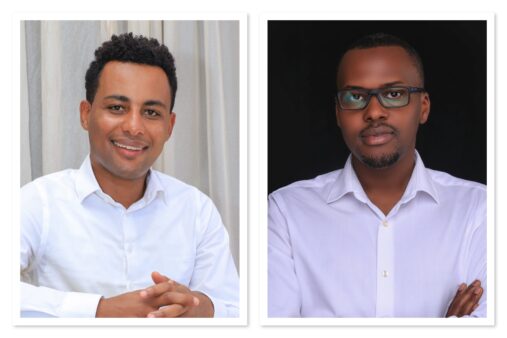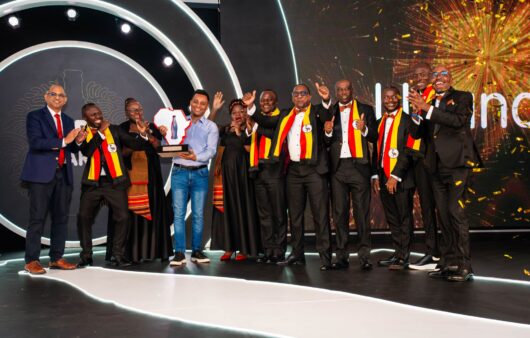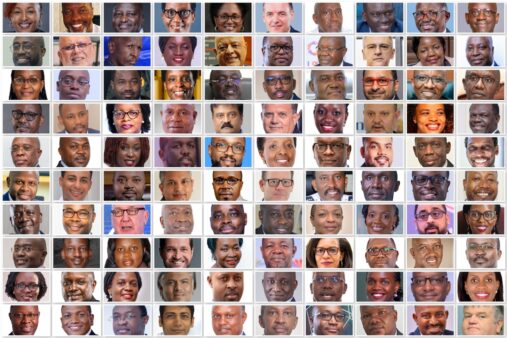Last year, the National Research Repository of Uganda (NRU) reported that imports and use of packaging and plastics in Uganda have increased six-fold within the last three years. While this is a sign of a growing and diversifying consumer economy, which creates business and employment opportunities for more Ugandans, it has also accelerated the challenge for sustainable management and recycling of plastic waste.
Plastic has become an indispensable part of modern life, providing a hygienic, affordable, lightweight and convenient packaging material for food and beverage products, but plastic pollution also threatens the sustainability of freshwater systems and marine life.
Although demand for recycled plastic continues to grow – driven, in part, by a commitment from brand owners to incorporate recycled content into their products, overall Uganda’s recycling rate remains very low as indicated by a National Environmental Management Authority (NEMA) report.
As a subsidiary of Coca-Cola Beverages Africa (CCBA), our commitment at Coca-Cola Beverages Uganda (CCBU) is to invest in our planet and our packaging, to help make the packaging problem a thing of the past. We work in partnership with The Coca-Cola Company which launched a sustainable packaging initiative called World Without Waste in 2018.
Our aim is to help collect a bottle for every one we sell by 2030, make all our packaging 100% recyclable by 2025 and make 25% of our packaging reusable by 2030.
We believe that industry-led and managed Extended Producer Responsibility (EPR) is a sustainable funding approach which ensures that producers of brands take full responsibility for the choice of packaging they place on the market, and enable the collection and recycling value chain for packaging.
To increase consumer and community awareness and clean up existing packaging, we’re bringing people together through ongoing local activities to collect and recycle plastic waste. To encourage more people to recycle more often, we’re investing to help people understand what to recycle, how to recycle, and where to recycle.
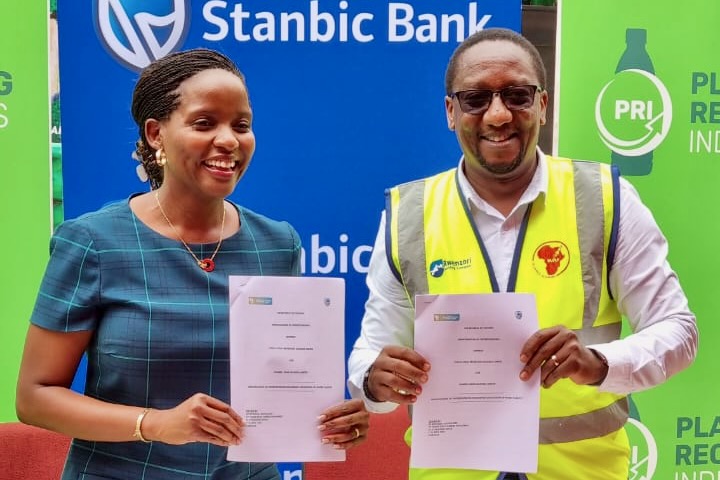
And we are reimagining our packaging to make it better for our planet and our business. We are working to make packaging part of a circular economy, placing a strong emphasis on packaging design, and expanding the use of clear and returnable plastic bottles.
We are well on our way to achieving our ambition of a 100% recycling rate. Last year, CCBU achieved an 85% collection rate, compared to an industry average of 41%.
CCBU, through its plastic recycling plant, Plastic Recycling Industries (PRI) in Nakawa, has partnered with various role players to promote recycling and reduce the amount of plastic waste entering the environment.
We have partnered with Stanbic Bank Uganda to identify designated collection spaces that will serve as plastic waste collection centres around Uganda, ensure appropriate security and maintenance of the collection centres, and encourage and equip the public to dispose of waste in a sustainable manner.
CCBU has also signed a partnership deal with three community-based plastic collection, management, and recycling companies – Yo-Waste, Ecoplastile and Asante Waste Management – to build a sustainable ecosystem.
The partnership will see the three companies collaborate with CCBU to set up more collection centres in the community and supply our plastic recycling plant with the plastic collected.
As a result of this support, Ecoplastile aims to expand its recycling capacity from 30 metric tonnes of plastic per month to around 150 metric tonnes. This will enable the company to work with at least 1,050 informal plastic waste collectors, empowering youth and women in communities. Ecoplastile uses the recycled plastic to make roofing tiles.
Yo-Waste Limited is a tech company that helps connect businesses and retail customers to reliable garbage collection and recyclers. The company was incorporated as a startup by five Makerere University computer science undergrad students in 2019 to implement their research projects in the community.
Leading logistics company DHL International (Uganda) has also signed a partnership with CCBU’s plastic recycling plant, PRI, to supply it with plastic waste.
Supporting the establishment of a circular economy for plastic waste has many environmental and economic benefits since recycling has the potential to create over 50 times as many jobs as landfills and incinerators. Thousands involved in the different stages of plastic recycling are already benefiting, especially women and youth.
At CCBU, we are a proud industry leader in developing increasingly sustainable ways to manufacture, distribute and sell our products. We use our industry leadership to be part of the solution to achieve positive change in the world and to build a more sustainable future for our planet.
Regardless of where it comes from, we want every package to have more than one life.
The problem of plastic waste in Africa, and its impact on water resources, requires concerted efforts from governments, corporates, civil society organisations and individuals. By working together, we can create a more sustainable future for our precious water resources and the communities that depend on them.
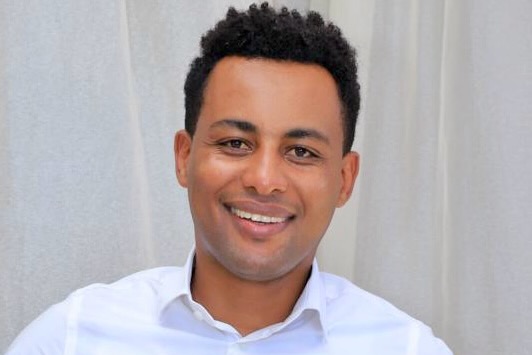
 Airtel Africa and SpaceX Announce Strategic Partnership to Launch Starlink Direct to Cell Connectivity Across Africa
Airtel Africa and SpaceX Announce Strategic Partnership to Launch Starlink Direct to Cell Connectivity Across Africa